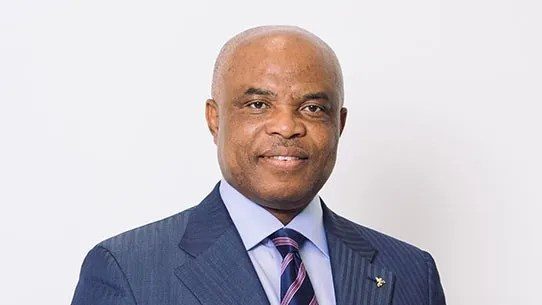In this news analysis, Nduka Nwosu argues that the EFCC must begin to deepen its investigative skills and learn to rely less on media trials that fail to reflect the art of due process
In the past two weeks, Halima Buba, and Innocent Mbagwu, two bank executives have been in the news for the wrong reasons.
What are the issues?
On April 2025, the Economic and Financial Crimes Commission (EFCC) had earlier directed Sun Trust Bank to transfer over ₦11 billion, belonging to one of its customers, Felak Concept Group Ltd, to its CBN Recovery Account. However the bank’s executives, citing their fiduciary responsibilities, requested a valid court order to authorise the transfer. The EFCC, however, did not produce such an order. Instead, the Commission allegedly disrupted the bank’s operations nationwide and detained Mrs. Buba.
In response, the executives filed a fundamental rights enforcement suit, asserting that the EFCC’s actions violated their constitutional rights and those of the bank’s staff. Following this, the bank eventually transferred the funds under what Mrs. Buba claim was coercion and threat before releasing her from detention. Shortly thereafter, the EFCC filed criminal charges against the same executives, who had initially resisted the directive in the absence of a court order.
Mrs. Buba and Mr. Mbagwu have maintained that all foreign exchange transactions cited by the EFCC were conducted through a CBN-licensed Bureau de Change, in line with regulatory guidelines. At the time of the transactions, Mrs. Buba was reportedly outside the country, and Mr. Mbagwu acted based on the documented instructions of the customer, consistent with industry practices.
As of now, no evidence has been presented publicly by the EFCC or any regulatory agency indicating that either executive personally benefited from the transactions or participated in willful money laundering.
Case Summary Against Buba and Mbagwu
In June 2025, the EFCC arraigned the two executives before the Federal High Court in Abuja on allegations of aiding cash transactions that were allegedly not routed through a financial institution, in contravention of the Money Laundering (Prevention and Prohibition) Act, 2022. The transactions in question reportedly involved $12 million USD linked to the account of Aisha Achimugu, CEO of Felak Concept Group Ltd.
According to the charge sheet, the EFCC claims the executives “aided” cash transactions and conspired to bypass reporting obligations. However, the SunTrust executives have stated that the transactions were executed by a licensed Bureau de Change, which qualifies as a financial institution under Nigerian law. The executives have since pleaded not guilty and met their bail conditions.
On her part, Aisha Achimugu filed a fundamental rights suit (FHC/CS/ABJ/626/2025) against the EFCC, alleging harassment and intimidation over what she claims were legitimate business transactions.
- Mrs. Buba and Mr. Mbagwu have also initiated a separate suit (FHC/ABJ/CS/802/2025) seeking judicial protection from threats, attempted arrests, and alleged coercion by the EFCC while the Felak Concept Group has brought a suit (FHC/CS/856/2025) against the EFCC, SunTrust Bank and the CBN, disputing the legality of debiting its account without a valid court order and requesting a refund.
- While the executives have since withdrawn their rights enforcement suit, the Felak and Achimugu cases remain active, with hearings scheduled for July 17 and July 25, 2025, respectively.
EFCC and Due Process
A very reliable source disclosed this is the first time Mrs. Buba and Mr. Mbagwu have been drawn into a high-profile dispute involving a government agency, arguing that this matter has the broader implication that goes beyond the individuals involved. “This matter raises important questions about due process, the rule of law, and the operational independence of financial institutions in Nigeria.
“Of course, the EFCC has been known for taking two steps forward and four steps backward as far as due process is concerned. Its trajectory over the years and even in recent times shows its interests in media trials without indepth investigation of most of its charges against its suspects. The EFCC in dancing the bo-peep, a comedy of the absurd. Where do we stand with all the cases between Buhari and the current administration? After the elaborate entertainment Nigerians were privileged to witness, when will the Bello and EFCC movie part two be released? And where is Aisha Achimugu in the current scenario?
The EFCC under its pioneer chief investigator Nuhu Ribadu, designed a template for fighting corruption, attracting global applause for the period he was in-charge. What has happened? The EFCC over the years has become a caricature of showmanship more interested in story telling. Period.
A tutorial or refresher course anchored on Ribadu’s seminal epistle: Show Me The Money, Leveraging Anti-Money Laundering Tools To Fight Corruption In Nigeria, is a timely wake up call for the current helmsmen of the anti-corruption agency.
As the courts prepare to hear the respective cases, financial and legal stakeholders are watching closely. The outcome may well define the boundaries of regulatory authority and set a precedent for how lawful banking operations are protected or challenged in the future.
*Nduka Nwosu, a former editor at THISDAY, was Group Managing Director of Leadership Newspapers Abuja.



